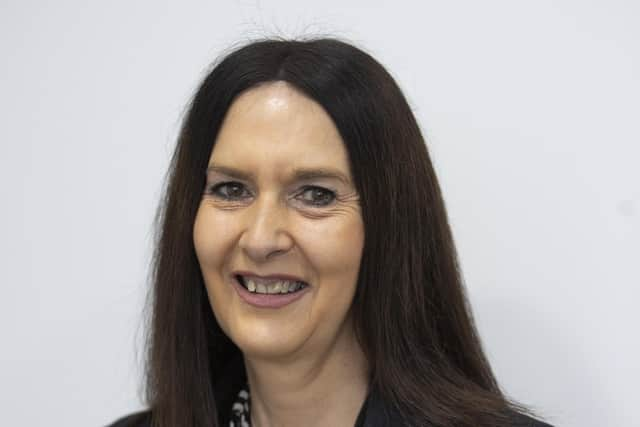Margaret Ferrier MP's community sentence for breaking Covid rules may not be as easy as some would have you believe – Karyn McCluskey


I have been lucky to see unpaid work around Scotland, with some pretty outstanding people supervising those who have come through the courts.
It could involve helping people in charity shops to attending neglected and overgrown graveyards, fence painting, furniture making and a myriad of other things.
Advertisement
Hide AdAdvertisement
Hide AdUnpaid work is the most visible part of community justice and when we survey the public, it is what people mention first and foremost.
Community justice is way more complicated than that, but unpaid work can be a really impactful way of repaying a debt to society where there has been harm caused, as part of a community payback order.
For those who do not present imminent risk to society in relation to harm, it can be life-changing. Particularly when people are given time to engage in other programmes to help change their lives.
We have seen many well-known names make errors in their lives and receive a community sentence here or abroad.
Boy George embarked on a recovery journey from drugs and carried out a community sentence in the US. He said he didn’t object to sweeping the streets and added: “I've always been a scrubber.”
Yet he completed it in the full glare of the media and with humour. People from all walks of life can experience justice. The important part is to engage, finish the sentence, work on other parts of your life that need change and move on.
I’ve met many people who enjoyed the experience of doing unpaid work and stayed on to volunteer. Before anyone shouts “it’s not meant to be enjoyable”, chill. It’s meant to be purposeful, and give people the opportunity to change.
The support, working in teams, the rigour of turning up for unpaid work and completing the order is part of the sentence. The other side of unpaid work is for those harmed and indeed the wider community, with overgrown areas cleared and made open to families, areas brightened up, painted and reinvigorated.
Advertisement
Hide AdAdvertisement
Hide AdIt is however still a sentence, it must be completed, to do otherwise could result in a return to court, perhaps additional restrictions and liberty at risk.
That’s not to say that doing unpaid work is easy. For many people coming through courts with problems around addiction and underlying mental health conditions, organisation and compliance can be tested. But it’s not impossible.
Orders and unpaid work requirements look at the person. Many of the women who receive orders after committing a crime are hugely traumatised. Making sure they are in a safe place, supported and perhaps only amongst other women is a key factor in helping them change and move on in life.
Community sentences can be life changing. They get a tough time in newspapers, yet I’ve heard many people ask for a short sentence in prison because a community sentence takes effort and compliance.
Despite the errors made by her and the wrongness of her actions, I hope Ms Ferrier is given the privacy to complete her sentence and move on. It’s not as easy as others would have you believe.
Karyn McCluskey is chief executive of Community Justice Scotland
